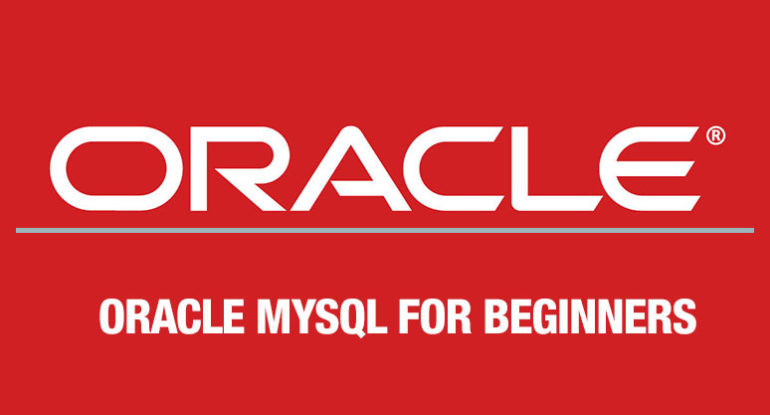- Home
- Database
- Networking
- Programming
- Online Courses
- Mobile Application
- Web App Developments
- Cryptocurrency Wallets and Mining Coins
- Q# Programming
- BlockChain Application Development
- Java Servlet Programming
- Java Training with Spring
- Developing Images with Docker
- C++ Training
- Python RPA Programming
- Excel VBA Training
- Ruby on Rails Training
- C# Training Course
- Testing
- Automation Test Engineer
- Penetration Testing
- Cucumber BDD
- Selenium Web Test Training Java
- Selenium Test Automation with PHP
- Selenium Test Automation with C# .NET and NUnit
- Android Appium Test Automation
- Online Performance Testing
- Python Automation Testing with Selenium and BDD
- Automation Test Architect
- Automation Test Analyst
- SpecFlow Automation Testing
- Contact
- About Us
Oracle MySQL for Beginners
Course Overview
MySQL is the most popular open source database in the world, enabling the cost-effective delivery of reliable, high-performance embedded and scalable Web-based database applications. It is an ACID-compliant and integrated transaction safe database with full commit, rollback, crash recovery, and row-level locking capabilities. Our MySQL course will teach you the database concepts and will give you hands-on experience in using and administering the database at an enterprise level.
- Explain the relational database model.
- Describe the features and benefits of MySQL.
- Install and configure the MySQL server and clients.
- Design efficient databases.
- Use Structured Query Language (SQL) to build your database and query data.
- Employ appropriate MySQL tools.
COURSE START DATES
| Start Date | Time | Days | Duration | Location |
|---|---|---|---|---|
| 16/05/2020 | 15.00-19.00 | Sat | 4 Classes | Brentford |
| 18/07/2020 | 15.00-19.00 | Sat | 4 Classes | Brentford |
| 19/09/2020 | 15.00-19.00 | Sat | 4 Classes | Brentford |
| 14/11/2020 | 15.00-19.00 | Sat | 4 Classes | Brentford |
Prerequisites
Target Audience
Course Content
Oracle MySQL for Beginners Training Course
- Course Goals
- Course Lesson Map
- MySQL Overview
- MySQL Database Server Editions
- MySQL Products
- MySQL Services and Support
- MySQL Resources
- Example Databases
- MySQL Client/Server Model
- Communication protocols
- MySQL Connectors
- The LAMP Stack
- Installation of the MySQL server
- MySQL Server and Client Startup
- Keyboard Editing
- Session Logging With the tee File
- Basics of Relational Databases
- Spreadsheet Versus Database
- Entities and Relationships
- Relationship Categories
- SQL Language and MySQL
- SQL data definition language
- SQL data manipulation language
- Database Modeling
- Structure and Cardinality Diagram (ERD)
- Keys
- Normalization
- Database Design
- Viewing and Evaluating a Database
- Data Types as Part of Database Design
- Numeric Data Types
- Temporal Data Types
- Character String Data Types
- Character Set and Collation Support
- Binary String Data Types
- Data Type Considerations
- The Meaning of NULL
- Creating a Database
- Creating a Table
- Showing How a Table Was Created
- Column Options
- Table Options
- Table Indexing
- Table Constraints
- The SELECT Statement
- Troubleshooting
- SQL Modes for Syntax Checking
- Common SQL Modes
- Deleting databases and tables
- Creating a new table using an existing table
- Confirming the creation of a new table
- Copying an existing table structure
- Creating a temporary table
- Adding, removing and modifying table columns
- Adding, removing and modifying indexes and constraints
- Manipulating Table Row Data
- The INSERT Statement
- The REPLACE Statement
- The UPDATE Statement
- The DELETE Statement
- Functions in MySQL Expressions
- Using Functions
- String Functions
- Temporal Functions
- Numeric Functions
- Control Flow Functions
- Aggregate Functions
- Spaces in Function Names
- Exporting with a Query
- Exporting with a MySQL Utility
- Importing from a Data File
- Importing with a MySQL Utility
- Combining Multiple Tables
- Joining Tables with SELECT
- Comma-Separated Joins
- Inner Joins
- Outer Joins
- Table Name Aliases
- Advantages of Using a Subquery
- Placement of Subqueries
- Subquery Categories
- Subquery Result Table Types
- Subquery Type/Placement
- Finding Mismatches
- Modifying Tables using Subqueries
- Converting Joins to Subqueries
- MySQL Workbench
- MySQL Enterprise Monitor
- Storage Engines
- Creating Views
- Transactions
- Retrieving Metadata
- Performance Schema
- MySQL Enterprise Backup




Reviews
There are no reviews yet.